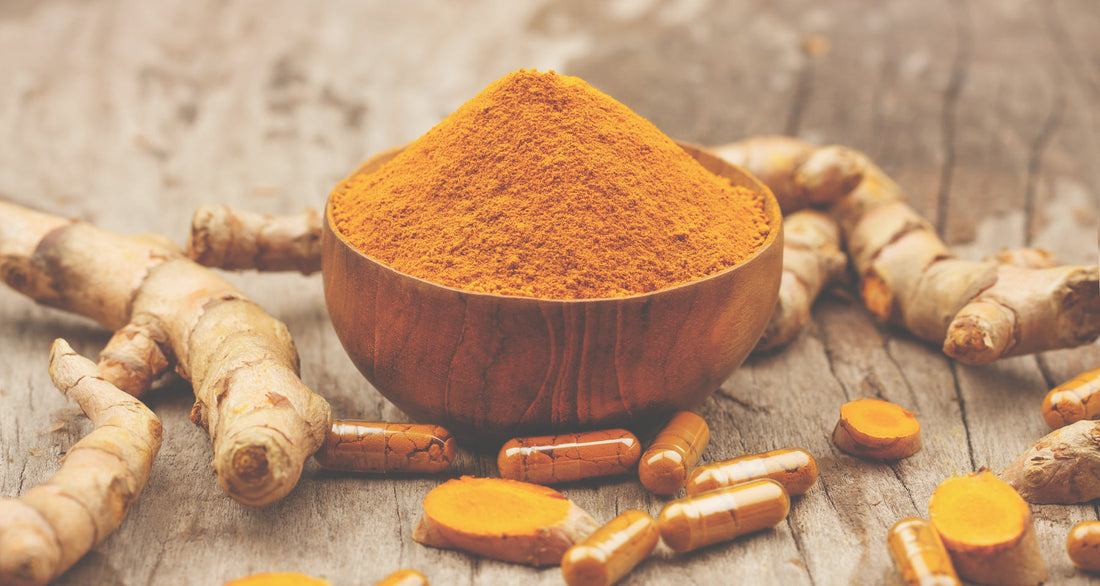
Healing Nutrition
What Organ Is Turmeric Good For? A Complete Guide to Turmeric's Benefits
By Mind²
Ever wondered what organ is turmeric good for? This golden spice has been a staple in traditional medicine for centuries, offering remarkable benefits for multiple organs in your body. Consequently, understanding how turmeric affects different bodily systems can help you maximize its potential in your wellness routine.
Turmeric and Its Impact on Liver Health
When asking what organ is turmeric good for, the liver often tops the list. As your body's primary detoxification organ, the liver benefits tremendously from turmeric's active compound, curcumin. Moreover, this powerful antioxidant helps protect liver cells from damage caused by toxins and free radicals.
Research suggests that curcumin can stimulate the production of bile, which aids in the breakdown of dietary fats. Additionally, it may help prevent fatty liver disease by reducing inflammation and oxidative stress within liver tissues. Furthermore, regular consumption of turmeric may support overall liver function and promote its natural cleansing processes.
How Turmeric Supports Digestive Organs
Beyond the liver, turmeric offers significant benefits for your entire digestive system. In fact, when considering what organ is turmeric good for, your stomach and intestines deserve special mention. Turmeric helps stimulate bile production from the gallbladder, which improves digestion and nutrient absorption.
For those with digestive disorders, turmeric can be particularly beneficial because:
- It reduces inflammation in the gut lining
- It helps manage symptoms of irritable bowel syndrome
- It promotes healthy gut bacteria balance
- It may prevent intestinal permeability (leaky gut)
Many people find relief from bloating, gas, and digestive discomfort after adding turmeric to their diet. Therefore, incorporating this spice into your meals could support your digestive organs' health and function.
Turmeric's Role in Heart Health
The heart also benefits significantly from turmeric consumption. As a result, when exploring what organ is turmeric good for, cardiovascular health cannot be overlooked. Curcumin may help reduce levels of LDL (bad) cholesterol while increasing HDL (good) cholesterol levels.
Additionally, turmeric has blood-thinning properties that may improve circulation and reduce the risk of blood clots. It also helps maintain the elasticity of blood vessels, supporting healthy blood pressure. For these reasons, turmeric has become an important supplement for those focusing on heart health maintenance.
Anti-inflammatory Effects on Joint Health
While not an organ, your joints greatly benefit from turmeric's anti-inflammatory properties. Consequently, those with arthritis or joint pain often turn to this spice for relief. Curcumin works by blocking inflammatory pathways in the body, potentially reducing pain and swelling.
Studies comparing turmeric to non-steroidal anti-inflammatory drugs (NSAIDs) have shown promising results. Unlike these medications, however, turmeric doesn't typically cause stomach irritation or other side effects when used appropriately. Thus, it represents a natural alternative for managing joint inflammation.
Turmeric and Brain Health
Another vital area when discussing what organ is turmeric good for is the brain. Curcumin can cross the blood-brain barrier, allowing it to directly benefit brain cells. Furthermore, it may help increase levels of brain-derived neurotrophic factor (BDNF), a growth hormone that functions in the brain.
Low levels of BDNF have been linked to various brain disorders, including depression and Alzheimer's disease. Therefore, by potentially increasing BDNF levels, turmeric might help delay or reverse brain diseases and age-related decreases in brain function. In addition, its anti-inflammatory properties may protect against neurodegenerative conditions that affect millions worldwide.
Turmeric for Immune System Support
Your immune system, while not a single organ, benefits tremendously from turmeric. The spice's immunomodulatory properties help regulate immune cell function. As a result, it can strengthen your body's defense mechanisms against pathogens while helping prevent overactive immune responses that lead to allergies or autoimmune conditions.
For optimal immune support, consider incorporating turmeric alongside other immune-boosting foods for a healthier life. This approach provides comprehensive protection against seasonal illnesses and supports long-term immune resilience.
Turmeric's Benefits for Women's Health
Women's reproductive organs also respond positively to turmeric. The spice may help regulate menstruation and reduce symptoms of PMS through its anti-inflammatory effects. Additionally, it might help balance hormones that affect reproductive health.
According to research on turmeric benefits for women's health, the spice offers promising results for conditions like endometriosis and uterine fibroids. Consequently, many women include turmeric in their wellness routines to support reproductive organ health naturally.
How to Use Turmeric for Maximum Organ Benefits
To maximize the benefits when considering what organ is turmeric good for, proper consumption methods matter. Firstly, combining turmeric with black pepper enhances curcumin absorption by up to 2000%. Secondly, consuming turmeric with healthy fats improves its bioavailability since curcumin is fat-soluble.
For therapeutic use, follow these guidelines:
- Start with small amounts (1/4-1/2 teaspoon daily)
- Gradually increase to 1-2 teaspoons daily if well tolerated
- Consider supplements for higher curcumin concentrations
- Maintain consistency for best results
Remember that turmeric can help prevent certain cancers when used regularly. In fact, its anti-cancer properties are among the reasons it's included in lists of foods that help prevent cancer.
Conclusion
When examining what organ is turmeric good for, the answer is quite broad – from the liver and digestive system to the heart, brain, and beyond. This golden spice offers comprehensive support for multiple body systems through its potent anti-inflammatory and antioxidant properties.
By incorporating turmeric into your daily routine, you're not just adding flavor to your meals but also providing your vital organs with valuable protection. Therefore, whether you're targeting specific health concerns or seeking overall wellness, turmeric deserves a place in your health regimen.



